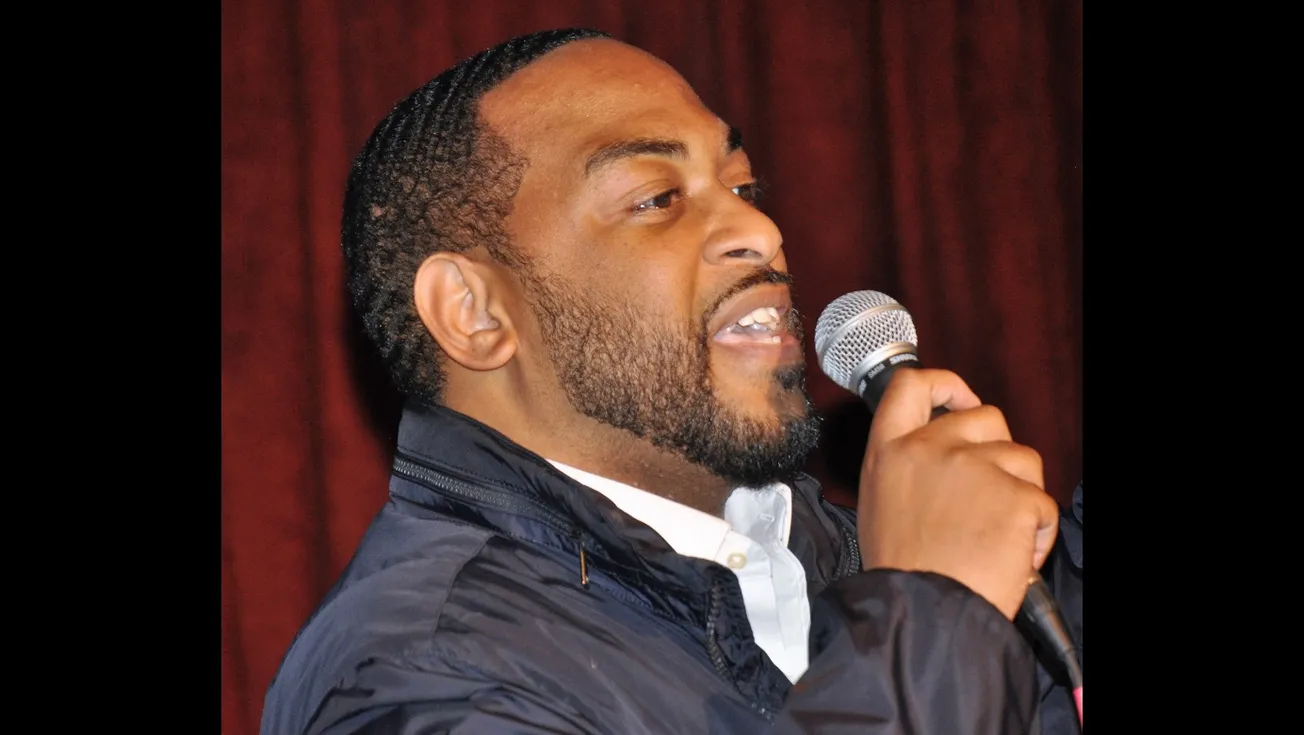Table of Contents
I never dreamed I’d get a chance to vote for a Kentucky candidate at any level who mirrored my views across the political spectrum. Then along came Charles Booker of Louisville, the Democrat who went after Republican Sen. Rand Paul’s job.
I’ve lived all of my 72 years in the Jackson Purchase, as far west as Kentucky goes and, arguably, as far right as Kentucky goes politically. I’m an endangered species hereabouts. I’m a left of liberal Democrat who doesn’t think “socialism” is a cuss word.
I’m long accustomed to casting my ballot for state and local Democrats who, like me, support unions, worker rights, and public education. But I cringe when they proclaim they’re pro-Second Amendment and “pro-life” and when they run like a scalded dog from the “liberal” label. I feel like grabbing the Pepto Bismol bottle when one professes to be a “conservative Kentucky Democrat, who’s not like one of those liberal Washington Democrats.”
I call them “half-a-loaf” Democrats. But if you stay home and don’t vote for half-a-loaf Democrats, you’ll get no-loaf Republicans.
Charles Booker is the whole loaf. (Louisville, where our son lives, is blessed with whole loaf Dems.) He’s pro-union, pro-worker rights, and pro-public education. Like me, he believes in federal civil rights activism to make real the “self-evident” truths about equality. Like me, he’s on the “wrong” side of the “social issues.” He’s for common sense gun laws. He’s pro-choice, pro-LGBQ+ rights, and pro-separation of church and state. He believes like Lincoln and FDR, my two favorite presidents, that the government is obliged to help people who need help.
Not unexpectedly, he lost in a landslide to Rand Paul, who is among the rankest of Republican demagogues. Paul panders, non stop, to the worst ailments in the body politic – notably racism. He cranked up the race-baiting against Booker even before the Democrat announced his candidacy in July, 2021.
Paul is an old-time Social Darwinist who believes that if you’re poor, it’s your fault. He thinks the government’s job is to enrich wealthy folks like him via hefty tax breaks for plutocrats and corporate bigwigs, while keeping off the books laws that safeguard consumers, workers, and the environment against the greedy excesses inherent in unfettered capitalism.
“I know how hard it is to envision things changing and then to fight for change, and then to keep fighting for it, and then to suffer losses, and then to get back up and keep fighting after that,” Booker said at a campaign rally in Paducah, a stop on his whirlwind bus tour of the state as election day neared.
“We’ve all had every reason to throw our hands up, to pack it up and to say ‘well, that's it.’ We suffer losses; I’ve suffered losses. You can drop your head, but the fact that you did not do that, the fact that you are here now ... reminds me of why I get up to fight every day.”
He’d hoped to take on Sen. Mitch McConnell in 2020 but narrowly lost in the Democratic primary. Afterwards he founded Hood to the Holler, an organization “focused on leveraging the incredible momentum for positive change in Kentucky and nationally, toward the aim of building broad coalitions, breaking down barriers of race and class, and fueling a people-centered movement to build power and transform our future.”
He also called his senate campaign “from the Hood to the Holler.” His goal was to unite at the ballot box urban and rural poor Kentuckians, regardless of race, color, or creed. His is the dream of the late 19th century Populist Party and the Knights of Labor, a pioneer union.
Booker’s campaign: Lessons from the past for today’s political reality
In the Knights of Labor, hard-pressed farmers invited impoverished city workers to join them in a new party. The preamble to its 1892 constitution proclaimed, “The conditions which surround us best justify our co-operation; we meet in the midst of a nation brought to the verge of moral, political, and material ruin. Corruption dominates the ballot-box, the Legislatures, the Congress, and touches even the ermine of the bench. The people are demoralized; most of the States have been compelled to isolate the voters at the polling places to prevent universal intimidation and bribery.”
The Knights “tried to teach the American wage-earner that he was a wage-earner first and a bricklayer, carpenter, miner, shoemaker, after; that he was a wage-earner first and a Catholic, Protestant, Jew, white, black, Democrat, Republican, after,” historian Norman J. Ware wrote. The Knights’ motto was “That is the most perfect government in which an injury to one is the concern of all.”
Booker looked to history to name his platform, borrowing from Democrat Franklin D. Roosevelt who carried Kentucky in blowouts all four times he was elected.
FDR called his program to fight the Great Depression the New Deal. Booker stumped the state for a Kentucky New Deal which his website described as “a bold vision to ensure life, freedom, and prosperity for all Kentuckians. We can end generational poverty, deliver on justice, and strengthen democracy by centering the needs of Kentuckians ahead of corporate greed, lobbyists, and career politicians that have held us back for so long.”
This morning the Booker campaign emailed what may be the last news release of his campaign: “I respectfully concede my loss in this Senate race,” Booker said. “The odds were clear from the start, but so was my faith and our collective urgency for change. For the nearly two years I ran this race.
“I was told it would be impossible to win. I understood what I was up against. More importantly, I understood what we were up against as a commonwealth. Our opponent wasn’t just Rand Paul, but it was also deep cynicism and disconnected coalitions that have been driven apart for years over wedge issues and deep rooted racism. I took a stand anyway, because I sincerely believe that change is possible in our beautiful commonwealth.”
I’m glad you believed change was possible, Charles Booker. Take it from an historian: History will be kinder to you than to Rand Paul.
--30--








